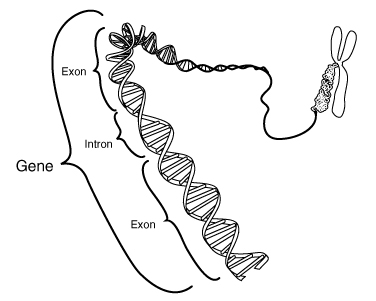|
From rxpgnews.com Memory
Researchers at the Translational Genomics Research Institute (TGen) today announced the discovery of a gene that plays a significant role in memory performance in humans. The findings, reported by TGen and research colleagues at the University of Zurich in Switzerland, Banner Alzheimer's Institute, and Mayo Clinic Scottsdale, appear in the October 20 issue of Science. The study details how researchers associated memory performance with a gene called Kibra in over 1,000 individuals --both young and old-- from Switzerland and Arizona. This study is the first to describe scanning the human genetic blueprint at over 500,000 positions to identify cognitive differences between humans.
"Using the latest whole-genome association technologies, we have shed light on the fundamental biological process of human memory performance," said Dr. Dietrich Stephan, Director of TGen's Neurogenomics Division and a senior author of the paper. "The capacity to remember is a defining feature of humans and we can now use this new understanding to develop drugs that will improve memory function." Researchers at the University of Zurich, collaborating with colleagues at Arizona's Banner Alzheimer's Institute, Mayo Clinic Scottsdale, and the Arizona Alzheimer's Consortium, collected DNA samples from cognitively healthy people and measured memory performance. TGen researchers screened the collected DNA samples using the whole-genome microarray technology. Researchers then combined the scan data with the memory performance test results and found a connection between Kibra and memory. According to the study's lead author, Dr. Andreas Papassotiropoulos, professor at the University of Zurich, "The link between Kibra and memory could lead to new treatments for memory loss and possibly help improve memory in patients with memory disorders such as Alzheimer's disease." Not only did the research team identify that the Kibra gene was associated with memory performance, but they also showed that the gene is turned on in the hippocampus, a brain region known to be critical to memory function. "Using sophisticated functional brain imaging techniques, we showed that individuals who had a version of the gene that is related to poorer memory potential had to tax their brains harder to remember the same amount of information," said Dr. Dominique de Quervain, professor at the University of Zurich. "Researchers now have enough of the 'letters' to read the 'genetic book of life' with unprecedented power," said Dr. Eric Reiman, executive director of the Banner Alzheimer's Institute and one of the study investigators. "We're excited about the chance to identify a gene that accounts for some of variation in normal human memory and to use this information in the discovery of promising new memory-enhancing treatments." Until now, researchers did not have access to the high-density technology to examine the genetic components associated with memory performance. The team at TGen used Affymetrix Human Mapping 500K Arrays to simultaneously analyze 500,000 genetic markers from the people who were tested. They made the memory discovery by comparing the genetic blueprint of people with good memory to people with poor memory; memory performance was based on a series of gold-standard tests for all individuals. The researchers then validated their discovery by replicating the Kibra gene finding in two separate and distinct groups of subjects. "This memory study is a perfect example of how the use of advanced technologies in human genetics yields fundamental discoveries," said Dr. Stephen P.A. Fodor, Chairman and CEO at Affymetrix, the Santa Clara, Calif.-based manufacturer of the technology. The impact of the study is that it gives the research community a new and important handhold into truly understanding the process of memory. The ramifications of this report are ultimately developing new and effective medicines that can combat memory loss, and that might also help improve memory in people with memory disorders like Alzheimer's disease. The team has already begun working on new drugs to restore memory function in age-related memory loss and diseases that have a memory loss component. Researchers at the Translational Genomics Research Institute (TGen) in Phoenix, Arizona have used the Affymetrix 500K Array to discover a gene--called Kibra--associated with memory performance in humans. The team's findings may be used to develop new medicines for memory-based diseases such as Alzheimer's and Parkinson's by providing scientists with a better understanding of how memory works at the molecular level. "Using the latest Affymetrix 500K Array, we have shed light on the fundamental biological process of human memory performance," said Dr. Stephan. "We can use this new understanding to develop drugs that will improve memory function." Until now, researchers did not have access to the high-density technology needed to examine the genetic components associated with memory performance. The team at TGen used Affymetrix Human Mapping 500K Arrays to analyze 500,000 DNA markers simultaneously, providing a genetic blueprint for the memory-study participants. The researchers discovered the Kibra gene by comparing the genetic blueprints of people with good memory vs. poor memory and looking for the genetic variations consistently present in one group, but not the other. They then validated their discovery by replicating the Kibra gene finding in two separate and distinct groups of subjects. "This memory study is a perfect example of how the use of advanced technologies in human genetics yields fundamental discoveries," said Stephen P.A. Fodor, Ph.D., chairman and CEO at Affymetrix. All rights reserved by www.rxpgnews.com |
